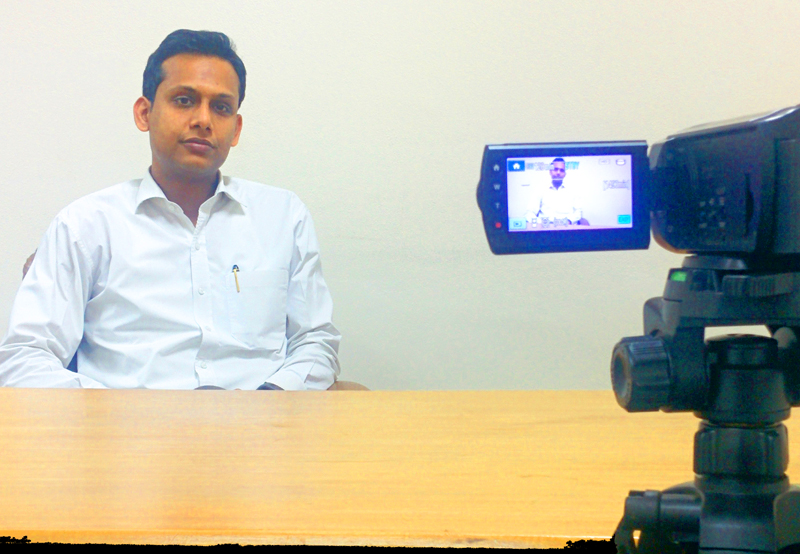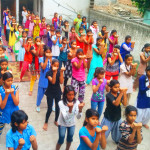According the PC PNDT Act (1994), any person who puts an advertisement for pre-natal and pre-conception sex determination facilities in the form of a notice, circular, label, wrapper or any document, or advertises through interior or other media in electronic or print form or engages in any visible representation made by means of hoarding, wall painting, signal, light, sound, smoke or gas, can be imprisoned for up to three years and fined Rs. 10,000.
Recently, websites like Amazon.in and Flipkart.com, were in the news for selling books which taught its readers techniques to determine the sex of one’s unborn baby. On being notified by certain activists that this could be deemed illegal and cause prosecution, they took it down. On a closer look at the world wide web, we see that the online sale of sex determination kits is rampant, and is on the verge of causing a furore in the country.
In this regard, we had a conversation with one of India’s leading lawyers, Mr. Apar Gupta. What followed was a very interesting conversation regarding this issue.
CSR: First question, is it legal for e-commerce sites to sell these kits?
Apar Gupta: If we look at e-commerce websites like Amazon or Flipkart, we see that it is not these sites which are selling the items directly. These websites are online marketplaces in the sense that they provide technical capabilities to the vendor to list their product online. So in a sense that they are the intermediary. It is similar to the Bazee.com case, in which its CEO was arrested as a pornographic clip of minors was uploaded for sale on ebay.in. What happened there was that law changed to recognize that online intermediaries are not liable as these are just market places, and the posting of such items constituents the user committing the illegality as opposed to the online platform. In this sense, Amazon and Flipkart are not liable, if they have taken due diligence, and on being notified, have removed these products. I would also like ask those who are taking these issues up and putting the responsibility on these websites, to ask for an increase in prosecution of people who manufacture and sell these kits locally in the country. If these kits are imported from outside, then it becomes the duty of our customs officials, and the police department to ensure that the products don’t get inside the country.
It is also relevant to note that till date, for all offences under PNDT ACT (which includes abortions), Tehelka report (2011) shows that there was a total of 1043 prosecutions under the PCPNDT ACT, only for aborting foetuses. We have to consider, whether we want to attack, regulate and censor speech, or do we want to change stereotypes and impose penalties for actual physical conduct.
CSR: What do you think can be the approach of civil society in curbing this issue online?
Apar Gupta: It is important to note that it is not incumbent on me as a citizen, a member of an NGO or civil society to go register an FIR. The burden on me is due to the failure of state and central governments to deal with this issue. The number of people online is not large when you see the population of the country. Abortions take place in rural interiors as well as in the cities. Civil society owes responsibility to not attack free speech online and not take measures which may be well intentioned but ultimately misguided. For example, now we see an activist who has filed a petition with the Supreme Court, asking for key words filtering. Key word filtering is an unscientific form of censorship, where a particular phrase such as “boy or girl” can be filtered out. This phrase will be used in pages selling determination kits, but it can also be used in works of literature as well as other kinds of pages. Thus key word filtering will lead to a disproportionate amount of censorship. What is better is for these activists to look for actual cases of abortions of female foetuses, and to contact the e-commerce portals selling the kits to take them down. They should also file subsequent police reports, and asking for cooperation of e-commerce websites and courier companies. There is no doubt that the girl child needs to be protected, no denying this at all. However isolating enforcement to just the websites, will only take care of the lowest hanging fruit and will not cut the problem from the base.
CSR: What can be done legally to deal with this issue?
Apar Gupta: I would like to say that the PNDT Act is not comprehensive. Even the latest amendments, which expand definition, have described the display of advertisements as illegal. This also states that any scientific literature related to sex determination is a violation. This is incredibly regressive as this will prevent academicians and statisticians to discuss the effectiveness of the PNDT act. How can we talk about the effectiveness of the PNDT Act when the act itself prohibits it? So I would not ask for stringency in terms of the law.
When we look at the prosecutions, we have to look at problem holistically. It is not that the PNDT cases are being neglected. The problem of judicial pendency is widespread to all crimes across the country. Fast track courts can offer some level of mitigation but such courts also dilute due processes in terms of prosecution. We cannot have time bound cases, if we don’t have qualified judges and lawyers. The problem of enforcement, at the level of judiciary is not limited to the PNDT act, but is a structural problem and a problem of capacity, which needs to be dealt with at that level.
We also need to inculcate the idea that having a woman in the house is not a disadvantage in any which way. These needs to be done not only through state entitlements but also by way of engagement with the private sector. Recently, there have been regulations that women need to be a part of publicly listed companies. However, we need to ensure that basic support and greater education needs to be percolated so that glass ceilings can be broken organically. Structural imbalances do exist and patriarchy will keep women out of positions of power. So when we think of measures such as reservations for women, we cannot ignore other responsibilities and duties, which include their education and providing other kinds of support. In addition to this, we also need strong and effective public awareness campaigns, where men are sensitized about women and their autonomy and choices.
Taking the cue from this informative conversation, CSR India has started communicating with online portals to adopt stringent measures to curb the sale of sex determination kits and books. In addition to this, we are also engaging in discussions with the Ministry of Women and Child Development, the Customs Authorities, Police Departments, and various courier companies, regarding this issue.
Download the Handbook on Pre-Conception & Pre-Natal Diagnostic Techniques Act, 1994 and Rules with Amendments
Looking forward to reading your blogs, you can mail us your entries at WriteWithUs@csrindia.org, or upload them at Write With Us.
Donation for Centre for Social Research to Join our effort in rehabilitating Domestic Violence
Discuss this article on Facebook





